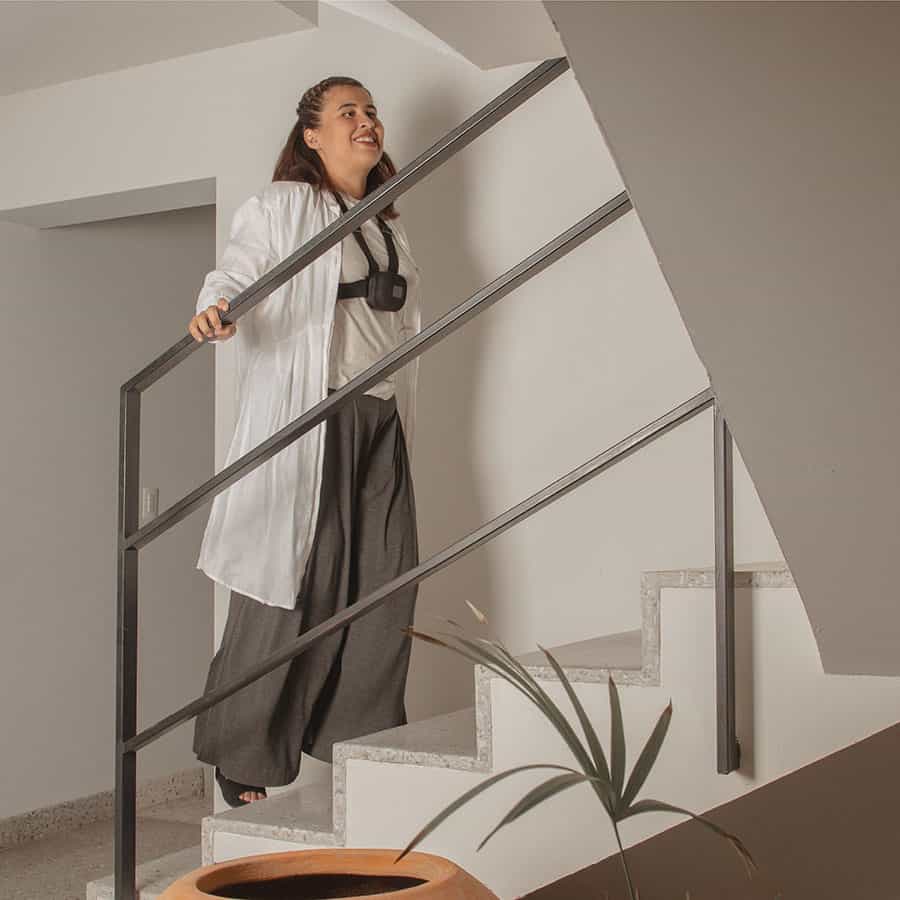Pioneering wearable device to help blind people navigate without a white cane

US-based STRAP Technologies has created a pioneering hands-free device designed to be worn by visually impaired individuals for greater independence and mobility.
The innovative assistive technology is designed to replace the traditional white cane that visually impaired people use to navigate their environment.
STRAP is a wearable, hands-free device with an innovative array of sensors that work by sending real-time information that detect obstacles at the head, chest and below — including oncoming bumps, holes, overhanging objects and steps. The haptic language notifications also make STRAP an intuitive device to use and easy to learn in less than two minutes.
STRAP is designed for all ages and abilities, and offers obstacle detection, stair detection, advanced haptic feedback, straight line navigation and orientation. It can also distinguish between physical objects and people. The assistive device, once charged, can last up to 72 hours. It is easy to recharge with a magnetic charger provided.
Users wear the device by strapping it around their chest. The straps go over the user’s shoulders and around their torso. Users are able to wear jackets and other outer clothing as long as it does not cover the core of the STRAP device.
The device was first developed in Mexico by STRAP Technologies CEO and Founder, Diego Roel, who comes from an extensive background in robotics, new product ideation, research and development, and IP strategy.
“STRAP is the first assistive technology on the market that replaces the white cane that’s been in use for over 100 years,” Roel said.
“We’ve spent three years on the research and development of STRAP to invent a product that is truly innovative. We are really passionate about changing the way the blind and visually impaired explore the world; our core mission is that we believe autonomy and independence is a human right; not a luxury.”

